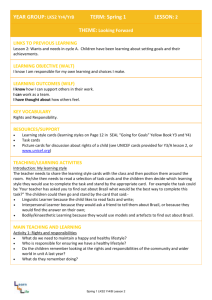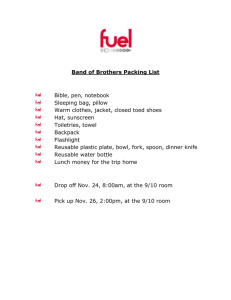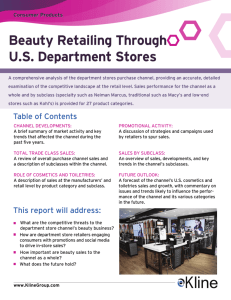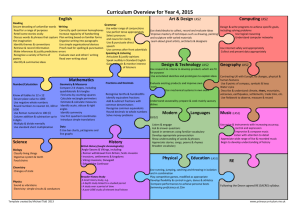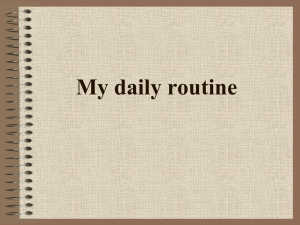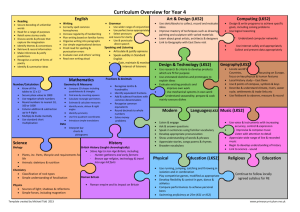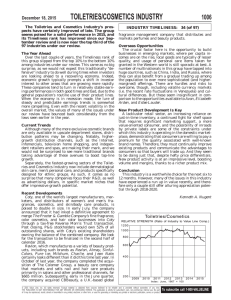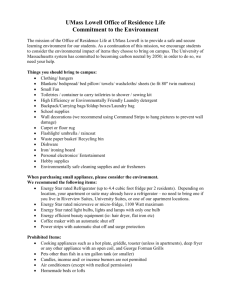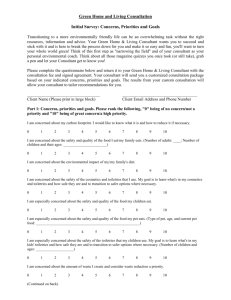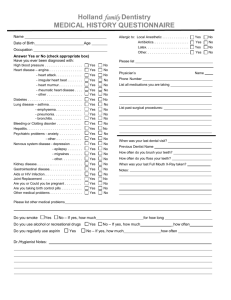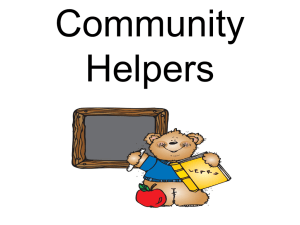007_Spring_2_Yr4_Lesson_4
advertisement
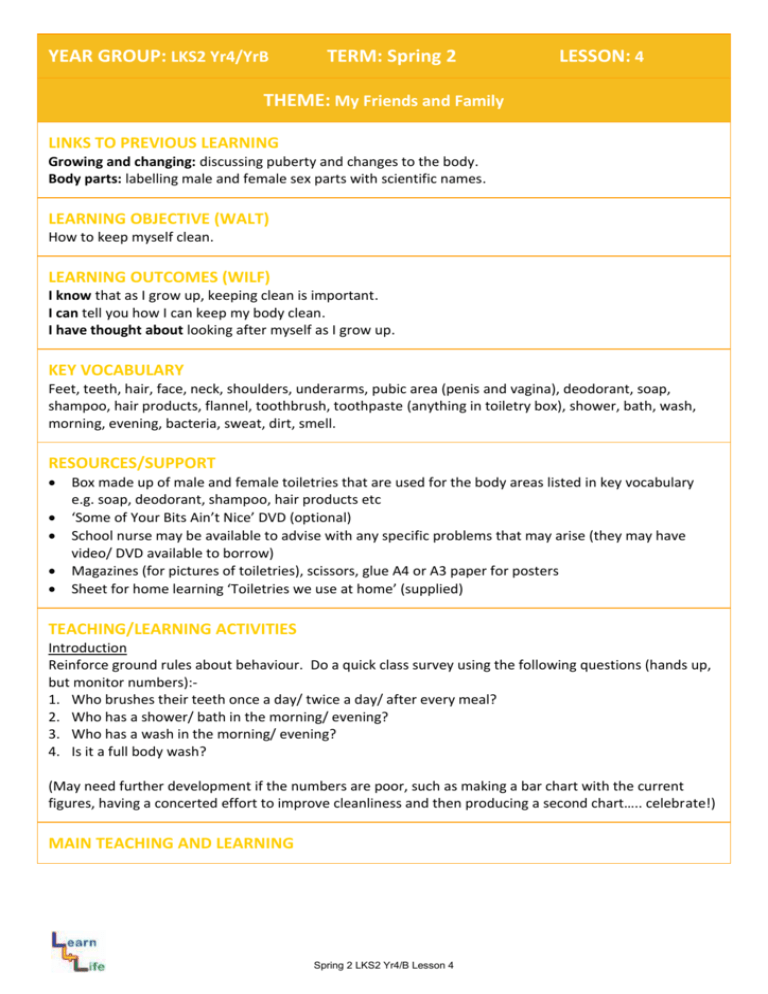
YEAR GROUP: LKS2 Yr4/YrB TERM: Spring 2 LESSON: 4 THEME: My Friends and Family LINKS TO PREVIOUS LEARNING Growing and changing: discussing puberty and changes to the body. Body parts: labelling male and female sex parts with scientific names. LEARNING OBJECTIVE (WALT) How to keep myself clean. LEARNING OUTCOMES (WILF) I know that as I grow up, keeping clean is important. I can tell you how I can keep my body clean. I have thought about looking after myself as I grow up. KEY VOCABULARY Feet, teeth, hair, face, neck, shoulders, underarms, pubic area (penis and vagina), deodorant, soap, shampoo, hair products, flannel, toothbrush, toothpaste (anything in toiletry box), shower, bath, wash, morning, evening, bacteria, sweat, dirt, smell. RESOURCES/SUPPORT Box made up of male and female toiletries that are used for the body areas listed in key vocabulary e.g. soap, deodorant, shampoo, hair products etc ‘Some of Your Bits Ain’t Nice’ DVD (optional) School nurse may be available to advise with any specific problems that may arise (they may have video/ DVD available to borrow) Magazines (for pictures of toiletries), scissors, glue A4 or A3 paper for posters Sheet for home learning ‘Toiletries we use at home’ (supplied) TEACHING/LEARNING ACTIVITIES Introduction Reinforce ground rules about behaviour. Do a quick class survey using the following questions (hands up, but monitor numbers):1. Who brushes their teeth once a day/ twice a day/ after every meal? 2. Who has a shower/ bath in the morning/ evening? 3. Who has a wash in the morning/ evening? 4. Is it a full body wash? (May need further development if the numbers are poor, such as making a bar chart with the current figures, having a concerted effort to improve cleanliness and then producing a second chart….. celebrate!) MAIN TEACHING AND LEARNING Spring 2 LKS2 Yr4/B Lesson 4 Activity 1 (whole class) Bring out box of toiletries. Explain that there are things in there to help us to keep clean, smell nice and keep us healthy. Allow a child to pick something from the box without looking into it. Ask the child to explain what it is. What do we use it for? How does it help us to keep clean and healthy? Explain that sweat and bacteria together make parts of your body smell so it’s important to wash/ keep clean and keep them to a minimum. It would also be useful to mention about wearing clean underwear and changing socks. Go through the contents of the box, making sure that feet, teeth, hair, face, neck, shoulders, underarms and pubic areas are covered (this must include boys rolling back foreskin and washing their penis regularly). Watch the DVD and discuss anything new this raises (optional). Activity 2 (Pairs) Using the paper and magazines the children can make posters about toiletries. They need to cut out as many different types of toiletries and pictures of happy people and then arrange them on the paper to make an interesting poster. They could also include the names of the products. DIFFERENTIATION Higher Ability: Design an advert (either drawn/computer generated or acted out) for a new product. What is it used for? What does it do? Lower Ability: TA support during carpet discussion to support children who are more reticent about contributing and to monitor understanding. TA to help children to find appropriate pictures and text in magazines or pair weaker children with more able ones. PLENARY Share posters, allow children to explain what they’ve found out. Are any of the pictures on the posters products that the children or their families use? KEY QUESTIONS 1. 2. 3. 4. 5. Who brushes their teeth every day/ twice a day/ after every meal? Who has a shower/ bath every day? Who has a wash in the morning/ evening? What do we use this for? What would happen if we didn’t use them? (toiletries) ASSESSMENT FOR LEARNING I’m going to do to improve how I look after myself by ….. ( washing my hair twice a week, brushing my teeth more etc) . Spring 2 LKS2 Yr4/B Lesson 4 CROSS CURRICULAR LINKS Core skills Writing opportunities Speaking and Listening opportunities Use of ICT Mathematical skills HOME LEARNING ACTIVITY Using the Venn diagram sheet, the children can list the names of the toiletries used at home by the male/ female members of the family and in the middle list those that are shared. EVALUATION Spring 2 LKS2 Yr4/B Lesson 4
